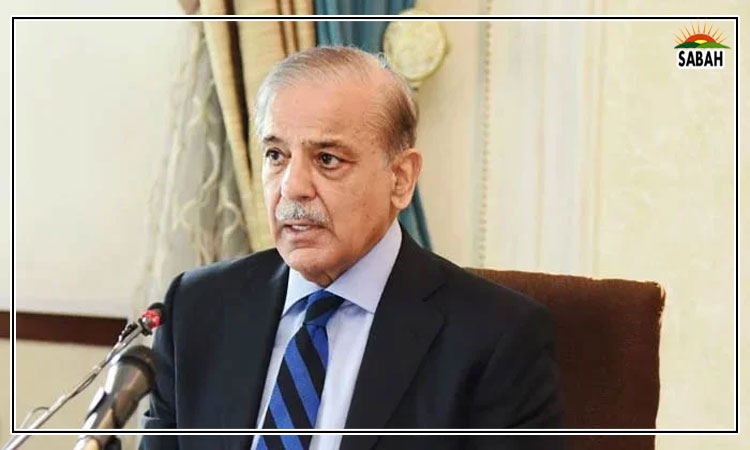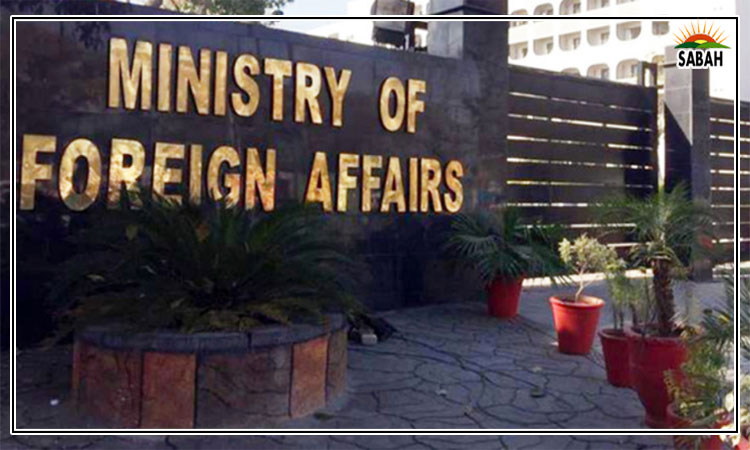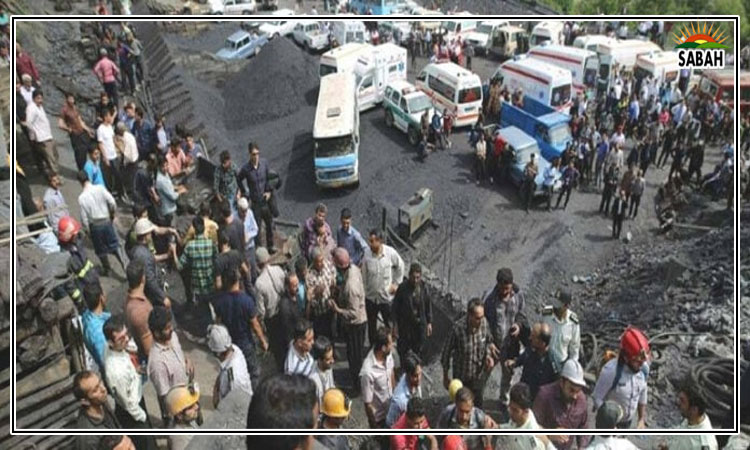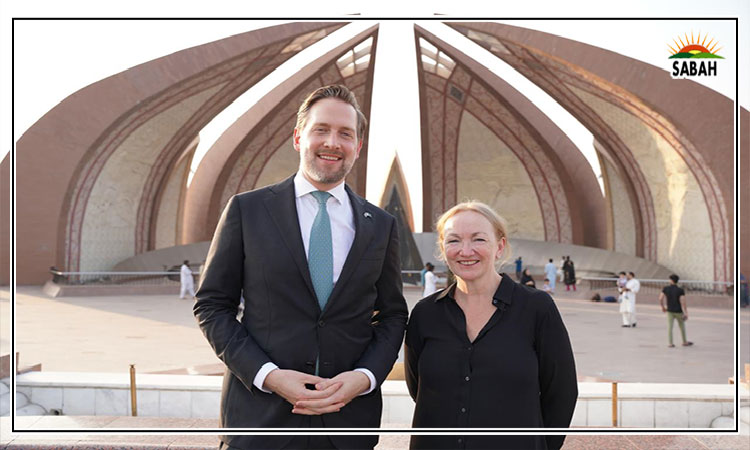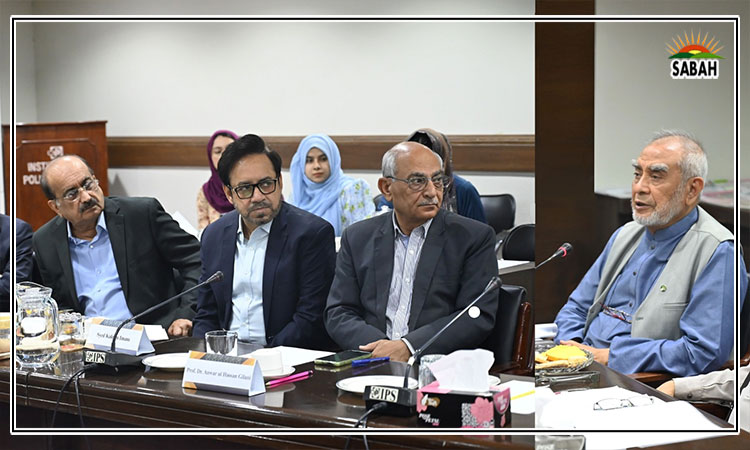Inclusive climate action…Raza Hussain Qazi
In a commendable move, the now dissolved National Assembly of Pakistan reaffirmed its commitment to bolster an inclusive climate change agenda by unanimously adopting a resolution concerning climate change.
Probably it is the first time ever for any legislative assembly in the Global South to have adopted a comprehensive resolution on demanding inclusive climate action. For civil society, it is indeed a moment to celebrate as it once again ignites the flame of hope in the political system that, if it functions well, it can provide a boost to the goal of sustainable development.
In democratic societies, political commitments made at the highest legislative forums play a significant role in setting the direction for the priority development agenda that helps nations alleviate poverty and achieve climate-compliant development. In the same vein, the resolution is a remarkable example of political commitment to an inclusive and climate-friendly Pakistan.
Over the past 20 years, Pakistan has consistently ranked among the top 10 most vulnerable countries on the Global Climate Risk Index, However, the trajectory of the country has been tumultuous as far as the progress to mainstream the goals outlined in the Paris Agreement into national policies and strategies is concerned.
Over the years, we have witnessed a number of measures to establish institutional mechanisms that include the updating of the National Climate Change Policy. The updated NCCP (2021) comprehensively incorporates all possible challenges of climate change adaptation and mitigation. Thus it also provides a framework for addressing the issues that Pakistan faces in the future due to changing climate.
Similarly, the country submitted an updated nationally determined contributions (NDCs) in 2021, which is an inclusive document and represents national consensus to accelerate the transition towards a climate-resilient economy. The submission showcases the Pakistan governments progress in climate action, which ranges from policy and programmes on nature-based solutions (NbS) to technology-based interventions.
However, the policy and plans have largely remained insufficient to steer the country towards achieving the goals. It was a couple months ago that the National Adaptation Plan (NAP) was developed and approved by the cabinet, eight years after the Paris Agreement was signed; the political commitment expected of successive governments was short in supply. It goes without saying that this commitment at the highest levels of the government is sine qua non to addressing all the issues confronting the realization and implementation of the climate policy and plans in letter and spirit.
It is also for the first time that the House acknowledged the contributions of international organizations like the Islamic Relief Worldwide, the UN, civil society and the diaspora in joining hands with the government to fight climate change and their assistance in rehabilitating vulnerable communities affected by climate-induced disasters in Pakistan.
Likewise, through the resolution, this is the first-ever instance that the House recognized the invaluable contributions made by Pakistani philanthropists from abroad and within the country for their role in fostering national economic growth.
While giving the strategic outline, the resolution urges all stakeholders to forge alliances to bolster cooperation in combatting the most daunting challenge of our times. It asks the government of Pakistan to strengthen collaboration with international organizations, leveraging their expertise and resources, to enhance the countrys climate mitigation policies and disaster risk reduction strategies. It also calls upon international organizations to support Pakistans efforts to tackle climate change through knowledge sharing and technology transfer.
It specifically highlights the ordeal of women and children by saying: It notes that extreme weather events, such as the 2022 floods, have disproportionately impacted vulnerable communities, exacerbating existing climate issues and placing a significant psycho-socio economic and health burden on women and children. The House emphasized the importance of collective action to protect and uplift these segments of society in the face of climate-related crisis.
The resolution signifies that development cannot occur in silos rather it is a sustained and integrated process dependent on creating synergies. The cornerstone of implementing the Paris Goals is building on the existing alliances and forging new partnerships, leveraging technology and mobilizing innovative sources of finance.
On top of that, the holistic effort requires localization of the resilience agenda while ensuring inclusion at various levels. It also requires harnessing the potential of our youth, leveraging the opportunities through innovative financing, and making use of technologies, and partnerships. This needs to be driven by a knowledge-policy amalgamation.
To fast-track the realization of the goals mentioned in the resolution, a whole-of-society and whole-of-government effort is required. The unanimous adoption of the resolution has been one of the rarest but finest of moves that regenerates hope in the idea of collective action for overall wellbeing. This is another rare window of opportunity for leaders to demonstrate political momentum to further revitalize governance systems for an integrated delivery to address roadblocks like climate change, health, and economic crisis.
The gigantic challenges faced by the nation call for cohesive, harmonized, and integrated policies. This will serve as a panacea to address national ills whether they are related to climate change, polarization, conflict or the economy. It is also clear that the UN, Pakistani diaspora and global organizations can play a vital role in forging meaningful collaborations. Achieving the climate and sustainable development agenda depends on robust and effective collaborations, strong partnerships, and unwavering political commitment.
This seems to be the time for rich developed countries to deliver on their pledges with respect to the Loss and Damage Fund. The upcoming COP28 provides an appropriate forum to take stock of the decisions taken at the previous COP in Egypt and propose steps to bridge the gaps by instituting greater coordination.
Courtesy The News





